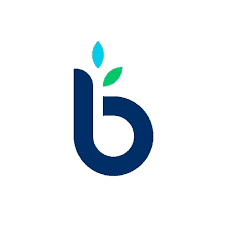
Need help getting funds? Get matched with lenders instantly
Answer some basic questions in less than 3 minutes with no impact to your credit score and compare multiple offers. No commitment, no hassle.
Get Matched💳 Save money on credit card processing with one of our top 5 picks for 2026
Defaulting on a business loan could result in damaged credit and difficulty finding funding in the future. Here's how to avoid default.
Defaulting on a business loan is rarely intentional. Cash flow gaps, unexpected expenses, or declining sales can make repayment difficult, even for otherwise healthy businesses.
This guide explains what happens when a business loan goes into default, how to reduce the risk before it happens, and what options may be available if you fall behind.
Table of Contents
If you miss a payment, lenders typically charge late or insufficient funds fees, and your credit may take a hit. If missed payments continue, the loan can enter default status, meaning the lender assumes repayment is no longer forthcoming and may begin recovery efforts. Grace periods vary by lender.
What happens next depends on how the loan was structured.
If you’re struggling to keep up with loan payments, acting early can make a big difference. These steps can help you reduce the damage and, in some cases, avoid default altogether.
Lenders generally prefer working with borrowers over pursuing default. If your cash flow issues are temporary, your lender may be willing to adjust your payment schedule or offer short-term relief — but only if you communicate early.
Refinancing can replace short-term or high-cost debt with longer repayment terms and lower payments. This option is most effective before missed payments are reported, as credit score requirements are typically higher once you fall behind.
Not all debt carries the same risk. Focus first on obligations that could disrupt your business operations or lead to asset seizure, such as:
Unsecured debt, like credit cards, may be a lower priority if cash is tight — just note that there will be consequences for not paying this debt.
If default appears unavoidable, a qualified attorney can help you understand your rights and potential options before the situation escalates.
Defaulting on a business loan should be avoided whenever possible, especially after the effort it takes to secure financing in the first place. More importantly, doing nothing when payments become difficult is often the most damaging choice.
Because default is usually a loss for both the borrower and the lender, early communication matters. Reaching out as soon as problems arise can open the door to alternatives and help limit long-term damage to your business and personal finances.
Want to help shape the future of the Merchant Maverick website? Join our testing and survey community!
By providing feedback on how we can improve, you can earn gift cards and get early access to new features.
 Our expert reviewers found BusinessLoans.com to have a quick and easy application process alongside excellent support and guidance for borrowers.
Start A Quick Application
Our expert reviewers found BusinessLoans.com to have a quick and easy application process alongside excellent support and guidance for borrowers.
Start A Quick Application
Help us to improve by providing some feedback on your experience today.
The vendors that appear on this list were chosen by subject matter experts on the basis of product quality, wide usage and availability, and positive reputation.
Merchant Maverick’s ratings are editorial in nature, and are not aggregated from user reviews. Each staff reviewer at Merchant Maverick is a subject matter expert with experience researching, testing, and evaluating small business software and services. The rating of this company or service is based on the author’s expert opinion and analysis of the product, and assessed and seconded by another subject matter expert on staff before publication. Merchant Maverick’s ratings are not influenced by affiliate partnerships.
Our unbiased reviews and content are supported in part by affiliate partnerships, and we adhere to strict guidelines to preserve editorial integrity. The editorial content on this page is not provided by any of the companies mentioned and has not been reviewed, approved or otherwise endorsed by any of these entities. Opinions expressed here are author’s alone.
 Our expert reviewers found BusinessLoans.com to have a quick and easy application process alongside excellent support and guidance for borrowers.
Start A Quick Application
Our expert reviewers found BusinessLoans.com to have a quick and easy application process alongside excellent support and guidance for borrowers.
Start A Quick Application